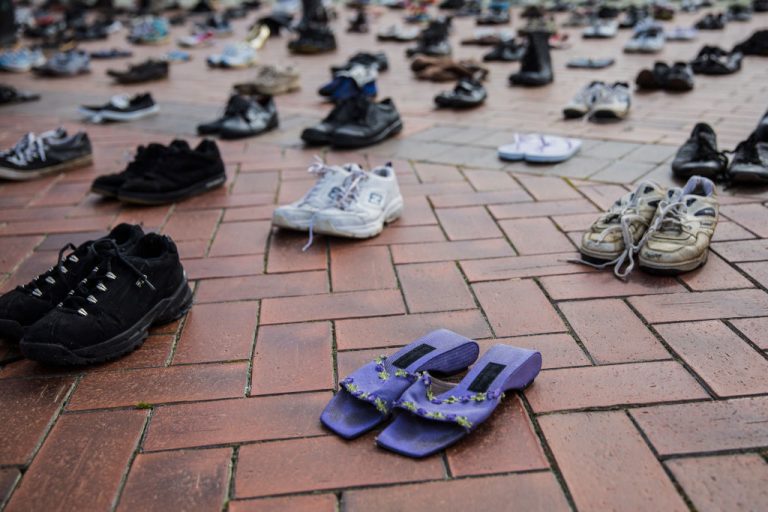The Government of New Zealand has confirmed that Coronavirus Disease 2019 (COVID-19) patients are eligible for a newly-enacted euthanasia law that pays doctors who provide the service a $1,087 plus travel expenses fee.
The New Zealand Ministry of Health (MOH) describes the End of Life Choice Act 2019 (EOLCA) on its website as legislation that “gives people who experience unbearable suffering from a terminal illness the option of legally asking for medical assistance to end their lives.”
The EOLCA was approved by the people of New Zealand in a 2020 rider referendum accompanying a federal election that saw lockdown and vaccine mandate fanatic Jacinda Arden win a second term as Prime Minister.
State-sanctioned medically-induced suicide came into effect on Nov. 7.
The EOLCA’s website defines Assisted Dying as “when a person with a terminal illness (and who meets the eligibility criteria) requests medication to relieve their suffering and end their life.”
Success
You are now signed up for our newsletter
Success
Check your email to complete sign up
It further defines Assisted Dying as an act that “involves” either a person’s medical practitioner, nurse, or themselves as “giving them medication to relieve their suffering by bringing on death.”
RELATED ARTICLES:
- New Zealand Vows to Ban Cigarettes for Future Generations Starting in 2022
- ‘Suicide Pod’ Approved for Use in Switzerland
- Pandemic Measures Increasing Youth Suicide Attempts, Distort Social Norms
According to an October article by NZ media outlet Stuff, “An official notice has been gazetted setting out a price schedule for the practice, including what medical practitioners will be paid by the Government for performing the procedure – $1087.20.”
Stuff noted that additional fees can be collected for traveling costs, as well as by psychiatrists who participate in assessments to determine clients of the Assisted Dying program as being of sound mind and not under duress.
The Eligibility portion of the MOH’s EOLCA website gives the following criteria:
- Aged 18 years or over
- A citizen or permanent resident of New Zealand
- Suffers from a terminal illness that is likely to end their life within 6 months
- In an advanced state of irreversible decline in physical capability
- Experiencing unbearable suffering that cannot be relieved in a manner that the person considers tolerable
- Must be competent to make an informed decision about assisted dying.
On Dec. 19, New Zealand anti-euthanasia publication The Defender published the results of an Official Information Act (the NZ version of FOIA) query the outlet submitted to the MOH in November, asking, “Could a patient who is severely hospitalised with Covid-19 potentially be eligible for assisted suicide or euthanasia under the Act if a health practitioner viewed their prognosis as less than 6 months?”
The Defender explained its rationale for its probe into the Government’s motives, “Firstly, New Zealand is currently described as being in a precarious position when it comes to COVID-19 and hospital resources.”
“In light of this, it would not be hard to envisage a situation in which a speedy and sizeable rise in COVID-19 hospitalisations could result in pressure to utilise euthanasia and assisted suicide as tools to resolve such a serious crisis.”
A response was received from the MOH on Dec. 7, and is partially published on the outlet’s website. Notably, the Ministry stated, “A terminal illness is most often a prolonged disease where treatment is not effective. The EOLC Act states eligibility is determined by the attending medical practitioner (AMP), and the independent medical practitioner.”
The Defender was alarmed by this response on several fronts, “Firstly, there is nothing concrete about the phrase ‘most often’, in fact, its inclusion in this specific context clearly seems to suggest that the MOH considers the definition of terminal illness to be subjective and open to interpretation.”
“The very next sentence seems to back this up,” the article continues. “It clarifies that the MOH considers the attending medical practitioner (AMP) and the independent medical practitioner to be empowered by the EOLCA to make the determination about what does and doesn’t qualify as a terminal illness.”
Editor of The Defender, Henoch Kloosterboer, stated, “In light of this vague interpretation, it is reasonable to suggest that COVID-19 could be classified as a ‘terminal illness’ depending on the prognosis of the patient and the subjective judgments of the AMP and independent medical practitioner. This feels like we’ve been sold one thing, and been delivered another.”
In the final paragraph, the MOH made it clear that the pandemic qualified for eligibility, so long as attending doctors say so, “Eligibility is determined on a case-by-case basis; therefore, the Ministry cannot make definitive statements about who is eligible. In some circumstances a person with COVID-19 may be eligible for assisted dying.”
In an interview with the Catholic Herald on Dec. 20, UK House of Lords member, Baroness Finlay of Llandaff, who is also a doctor and a professor of palliative care at Cardiff University School of Medicine, said that the inclusion of COVID patients in euthanasia eligibility in a country that has extensively used lockdowns, measures, and vaccine mandates to fight the pandemic “turns the ethos of medicine on its head.”
“It is bizarre that a country which has been trying to protect it citizens [sic] by closing down completely from a virus from which people can fully recover … is now suggesting that these patients should be killed by their doctors,” she stated.
“You really cannot predict death 100 per cent…So why not support them while they are dying and leave the door open in case they are in the group that defies all odds and recovers completely?”

















